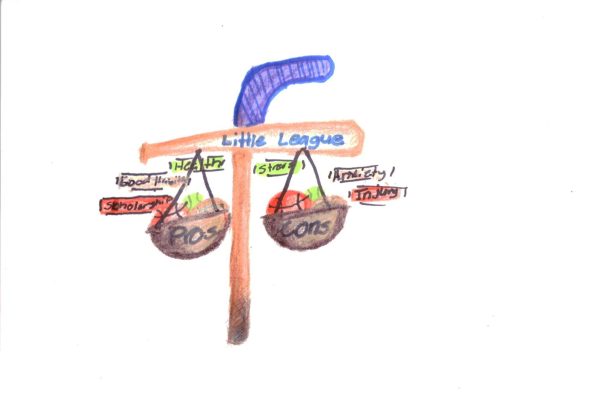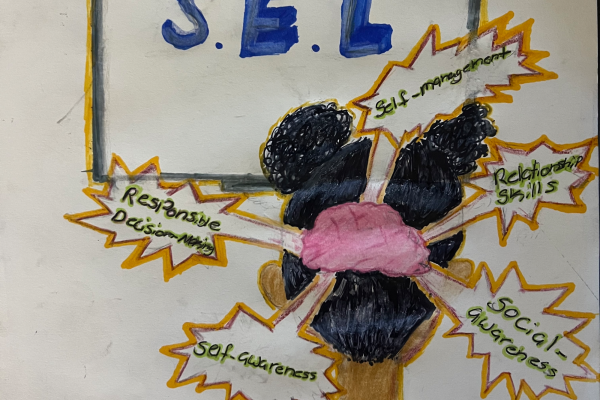Something in the water, lead levels rise in city schools
“The VBCPS website states that the delay in notification was due to the need to secure the impacted sites and develop a communications strategy. Unfortunately, it fails to explain why the sites could not have been secured after a public announcement. I am troubled that developing a communications strategy was prioritized over providing parents vital information related to the health of their children.” -Virginia Congresswoman Elaine Luria (D)
One may ask what was stated in a somber AlertNow notification sent by Central Office early last month. The message most people signed up for the service received was simply to check emails for an important announcement from Virginia Beach City Public Schools (VBCPS).
So, after much speculation and logging in to email accounts to read the ominous press release, it was revealed that 27 Virginia Beach schools had their drinking water test positive for “actionable levels” of lead contamination.
According to the Environmental Protection Agency (EPA) guidelines, an actionable level of lead contamination in water is defined as lead levels greater than 15 parts per billion (ppb). VBCPS schools, 27 of them at least, tested higher than the EPA guideline. It was also discovered that, apparently, school drinking water was mandated for testing by a 2017 state law with an emphasis on testing buildings built before 1987.
The VBCPS initial press release in November also stated that the levels of lead are below levels that would pose a risk to student health.
In the meantime, and before the public was made aware of the issue at hand, the school district responded by testing 33 schools that were built before that particular year. Still no one was made aware of the problem even though it turned out that 61 drinking water and food prep sources from these 27 schools had high lead levels in their water.
And surely, due to the many studies school officials regularly quote about best practice for student learning, they had to be cognizant of the 2016 report from the American Academy of Pediatrics, that reported lead levels must be kept below 1 ppb in school water fountains.
According to the World Health Organization (WHO), drinking water contaminated with lead can cause long-term effects in adults including: increased blood pressure, hypertension, cardiovascular effects and kidney damage.
Interestingly enough, the EPA states that even low levels of lead exposure have been linked to a damaged nervous system, learning disabilities, impaired hearing, and abnormal blood cells in children.
It has since been revealed that school officials were aware of the lead risk weeks before it was announced to the public, while citywide administration claims that they wanted to fix the lead contamination before disclosing the information to the public, leading to unnecessary worry from the public.
Regardless of the city’s claim that the lead levels in schools’ water could never hurt the students, the real problem arises when things that could possibly pose a threat are kept a secret from those exposed to said threats. The lack of transparency evident in the relationship between the school board, city officials and the rest of the school system is cause for worry.
Upon discovery of the contamination, the public should have been informed. The school system has no business withholding information that could affect the health of our youth. Leaded water is a serious matter and is not something to be taken lightly.
Dear Editor,
I disagree with the school system’s actions. They should have let everyone know about this problem the second they found out. I would never want my kid or anyone I know drinking water contaminated with lead, especially in the 27 schools that had high levels of lead.
-11th grader, Connor Pope
Dear Editor,
I agree that the students and everyone involved with the school system should have immediately been notified about the lead levels in the water. It is especially our business to know what we are consuming, and if there is a possibility for health issues to arise from the water. Lawsuits could be filed against the school.
-11th grader, Brooke Toner
Dear Editor,
I disagree with this article and think it was a good idea to keep the public uninformed of the issue. If the lead levels were above the limit that would harm students then I think the public should’ve been informed, but because the amount of lead in the water was harmless, the lack of transparency reduced overreaction by parents. The government keeps many things hidden from the public in order to reduce panic.
-12th grader, Connor Toben
Dear Editor,
I agree that the school system should have informed the public the second they got the information about the lead levels in the water. Holding off for weeks like this is just dangerous. I also believe people should start seriously talking about getting rid of the school board and the superintendent.
-12th grader, Logan Medlica










